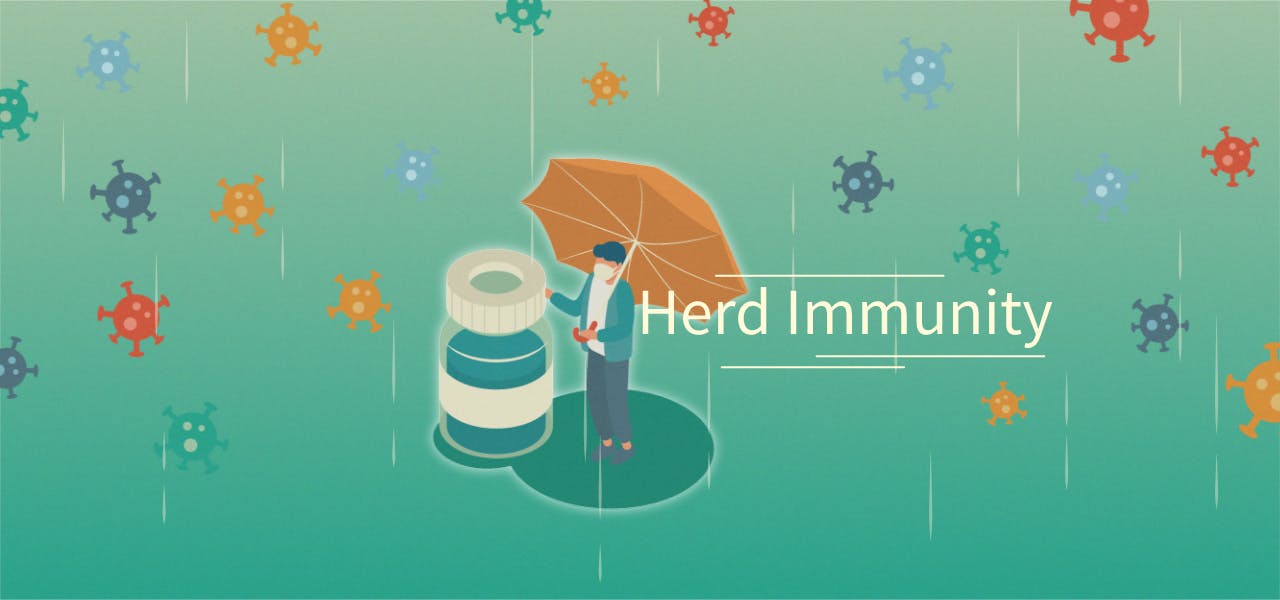The fast spread of the coronavirus and its impact has been watched and felt by billions of people in every corner of the world. Never before has a pandemic spread so quickly and so rampantly as COVID-19, partially due to the way the virus works and in part because of the ease and predominance of international travel in today’s society.
Although government restrictions on local and international travel have been in place for months, the virus still continues to remain a serious threat in dozens of countries. The new vaccines are helping alleviate some concerns, but most of the time, infectious diseases are diminished only when there is enough of what is called a “herd immunity.” This immunity against a disease occurs when the general population is immune to the infection through either previous contact or a vaccine. While we know that herd immunity is beneficial, there are different arguments on the moral and ethical ways to get to that point.
What is Herd Immunity?
In the past, societies hadn’t had the technology to develop vaccines and prevent infectious diseases from spreading, but they still dealt with them. Most of these diseases only reached an end when the majority of people in contact with them either developed an immunity or died.
Some countries are seeing this process repeat itself with COVID-19. The reality is that there was no vaccine until recently and treatments were hit and miss for months as people succumbed to the ravages of the virus. In some places, the statistics showed that the first wave of infections was significantly higher than that of any subsequent waves, since almost everyone in the population had already been infected. This ‘herd immunity’ is thought to limit new outbreaks from happening in sizable proportions.
These statistics, and the potential benefits that would come from herd immunity, have resulted in proposals from many countries to encourage rather than discourage the return to a normal society. Those who are most at risk would have extra steps taken to protect them, while the rest of the population could chase this herd immunity as much as they felt comfortable doing until the coronavirus had run its course and hit against vaccines and immune systems.
Arguments For and Against This Population Mitigation
Infectious disease experts and virulogists agree that herd immunity works. It’s a science-backed, evidence-based strategy that is ultimately the most effective way to get rid of a contagious virus. But how that strategy should be allowed to be unleashed is where the arguments arise.
Countries that saw a devastating first wave of infections are hesitant to repeat the lockdown procedures that didn’t work so well the first time around, but second and third waves are all around the world. These countries have vocal arguments from policymakers and citizens to let life get back to normal and allow people to choose how they want to face COVID-19. When their freedom to choose is taken from them, it can be as difficult to deal with as handling the virus itself. For many people, this has meant the end of their small businesses, loss of employment, and even loss of housing. Chasing herd immunity is a preferred alternative to these consequences.
However, experts like the World Health Organization (WHO) also agree on herd immunity as a means of protecting people from COVID-19, but the strategy is much different. WHO suggests using mass vaccination as the preferred way of eliminating the coronavirus threat. With vaccines, the human body’s immune system is able to create proteins that fight a disease, even if it has not entered the body yet. These proteins, or antibodies, work without making the person sick and protect them against the disease. The pathogen can’t be passed on, so the transmission chain is broken, and a form of herd immunity ensues.
To achieve this safely and effectively, though, a large portion of the global population would have to receive the vaccine in order to lower the virus among the world enough to have it run its course and disappear. Those who are able to safely get the vaccine would need to do so in order to protect the remaining population who can’t, for whatever medical reasons they have.
Herd immunity is going to be the best way to defeat the coronavirus and get the world back on track, but how it is achieved is still a controversial issue.
